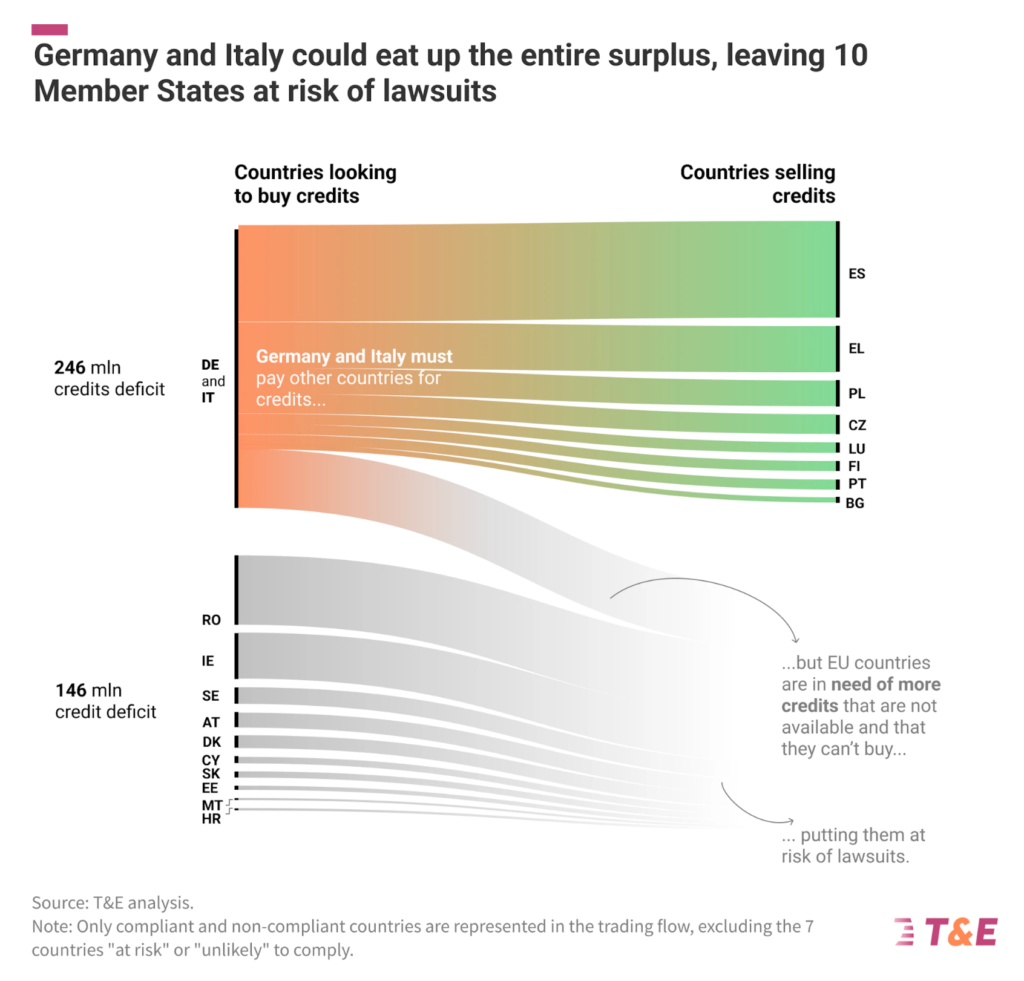A recent study analyzing national climate plans has found that, without immediate action, twelve European Union (EU) countries are poised to fall short of their 2030 climate targets under the Effort Sharing Regulation (ESR).
An additional seven countries face a significant risk of not meeting their goals. Germany and Italy are identified as the most underperforming nations, with France narrowly on track but vulnerable to setbacks.
Germany and Italy’s Substantial Shortfall
The study reveals a substantial gap between Germany and Italy’s current trajectory and their climate targets. Germany is projected to miss its target by 10 percentage points, while Italy faces a 7.7 percentage point deficit.
This shortfall could consume all available carbon credits for other countries, with Germany alone requiring 70% of these allowances. This leaves other underperforming nations potentially without access to credits, risking legal action.
Financial Implications and Potential Solutions
If carbon credits were traded at the projected price of €129 in 2030, Germany could face a staggering bill of €16.2 billion to purchase credits from overachieving countries. This comes at a time when Germany is already grappling with a budget crisis. Italy, with its current trajectory, could face a €15.5 billion bill. However, both nations can still meet their targets by implementing measures to accelerate electric vehicle adoption, improve building insulation, and adopt other climate-friendly policies.
Scarcity of Carbon Credits and Rising Prices
The study warns of a potential scarcity of carbon credits if countries fail to act promptly. The large number of nations projected to miss their targets could trigger a bidding war for credits in 2030, driving prices up significantly. This could further exacerbate financial burdens for underperforming countries.

The study’s findings have prompted calls for immediate action and policy reforms. The European Commission is urged to establish an action group to guide underperforming countries and propose measures such as electrification targets for company cars. By addressing these issues now, nations can avoid costly penalties and ensure a more sustainable future.
Effort Sharing Regulation and National Climate Plans
The Effort Sharing Regulation mandates that EU member states achieve specific climate targets in five key sectors: road transport, buildings, small industry, waste, and agriculture. These targets are set based on a country’s GDP, with wealthier nations facing stricter reduction goals.
The overall EU target is a 40% reduction in emissions by 2030 compared to 2005 levels across these sectors. Each country is required to submit National Energy and Climate Plans (NECPs) outlining their strategies to meet this target.
Analysis of NECPs and Projected Shortfall
The study analyzed draft NECPs and recent projections to assess the potential emissions reductions of all 27 EU countries. The aggregated data reveals a projected decrease of only 35.5% in emissions by 2030 compared to 2005 levels, falling short of the -40% EU target by 4.5 percentage points.
Access the full study report in PDF format.